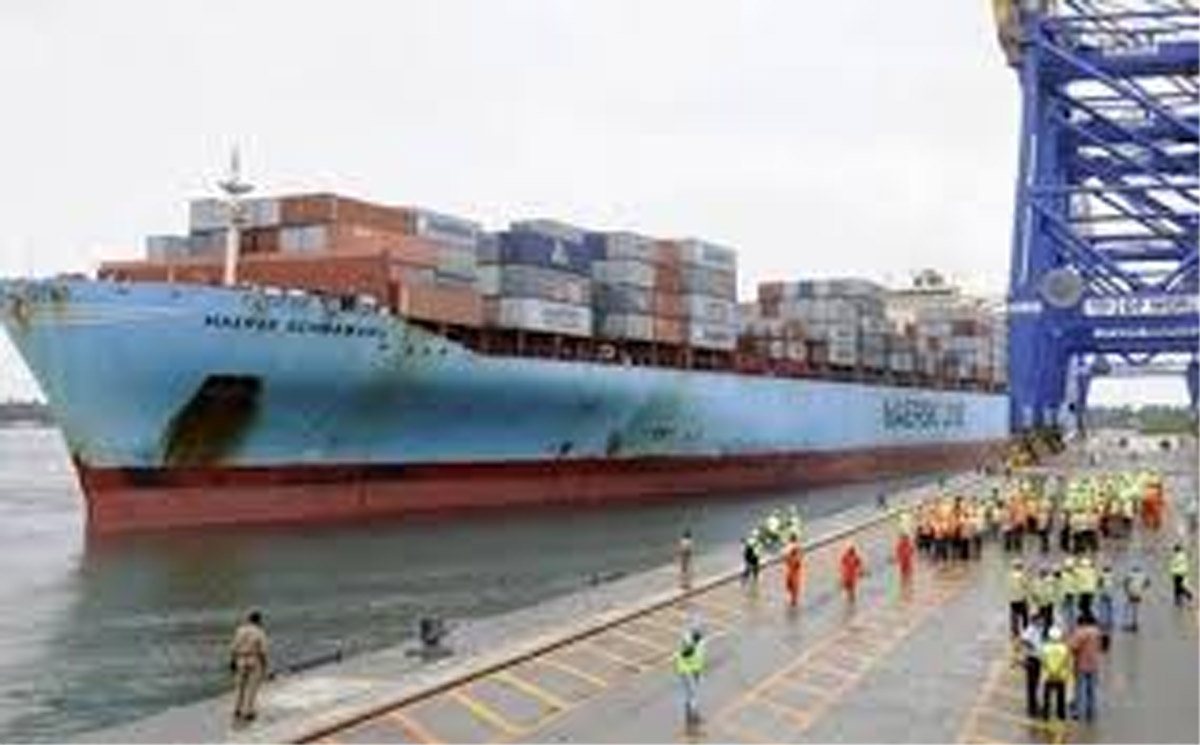NEW DELHI, Dec 24: India’s containerised trade in the September quarter remained flat as compared to the global growth due to weak domestic demand, according to a report by maritime conglomerate Maersk Group.
However, the country’s overall exports to Africa grew 11 per cent led by appliances and kitchenware, vehicles and seeds, beans and cereals and flour.
The refrigerated cargo exports to the Mediterranean region witnessed an increase, primarily fuelled by meat, fish and shellfish, the ‘Maersk India Trade Report Q3 2019’ said.
“India’s import and export container trade in Q3 2019 (July-September) remained flat as compared to global growth of 1.5 per cent. The slowdown is aligned closely with the weaker domestic demand, as well as a reflection of the broad-based cyclical weakening of the economic environment in all the main global economies,” the report said.
The negative effects of escalating trade restrictions also weighed on the growth in the quarter, it said adding, the restrictions have reduced bilateral trade between the US and China.
The change in dynamics has led to shifts in trade structures, with global importers having shifted sourcing from China to other countries such as Vietnam, Taiwan, Bangladesh and Korea, and Thailand, Mexico as well as India showing early signs of being next in line to benefit, the report added.
“Specifically in India, the economic uncertainty, tight liquidity, decline in global export orders and evolving domestic political scenario also affected the flow of investments and added to currency volatility. While imports into the country witnessed a subdued growth, the overall fiscal impact was nullified by an identical contraction in exports,” it said.
India is looking for greater access to the Chinese market as it seeks to arrest the fall in farm commodity exports, the report said adding that private companies from India and China have signed more than 120 MoUs for export of various products from India, including sugar, chemicals, fish, plastics, pharmaceuticals and fertilisers.
However, India was cautious when it came to mega trade deal RCEP as it decided not to join it unless a deal was offered which would help protect the interests of local businesses and avoid flooding goods from China into the Indian market through third countries, it added.
“The current slowdown witnessed in the last two quarters can be accredited to tight liquidity and working capital, weaker domestic consumption patterns and slower global growth. ..India boosted its ‘Ease of Doing Business’ in World Bank’s 2020 rankings. This provides a huge opportunity to entice multi-nationals and global investors to grow their trade with India,” said Steve Felder, Managing Director, Maersk South Asia.
“The Government has an ambitious goal of becoming a USD 5 trillion economy. To achieve this, there has to be a focussed approach in implementing reforms and measure to drastically improve the landside infrastructure to boost logistics further and adopt digitalisation as rapidly as possible. This will help catalyse the export growth, supported by robust policy reform,” Felder added.
AP Moller – Maersk is an integrated container logistics company working to connect and simplify its customers’ supply chains. The company operates in 130 countries and employs roughly 76,000 people. (PTI)
Trending Now
E-Paper


